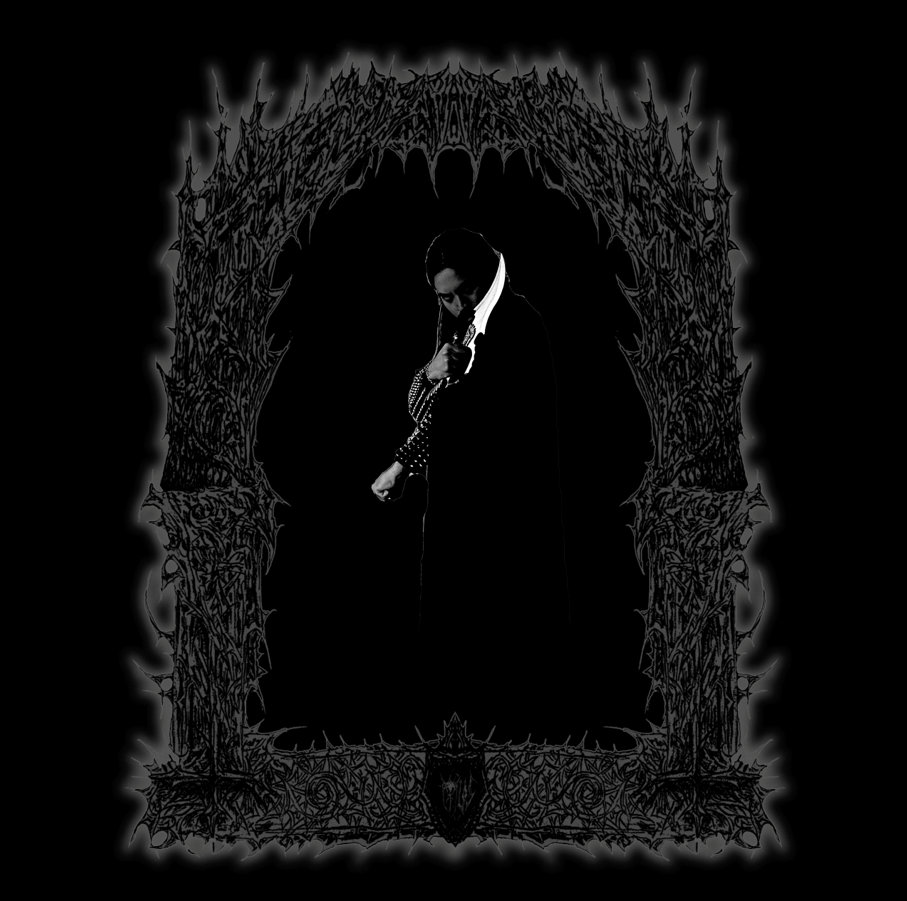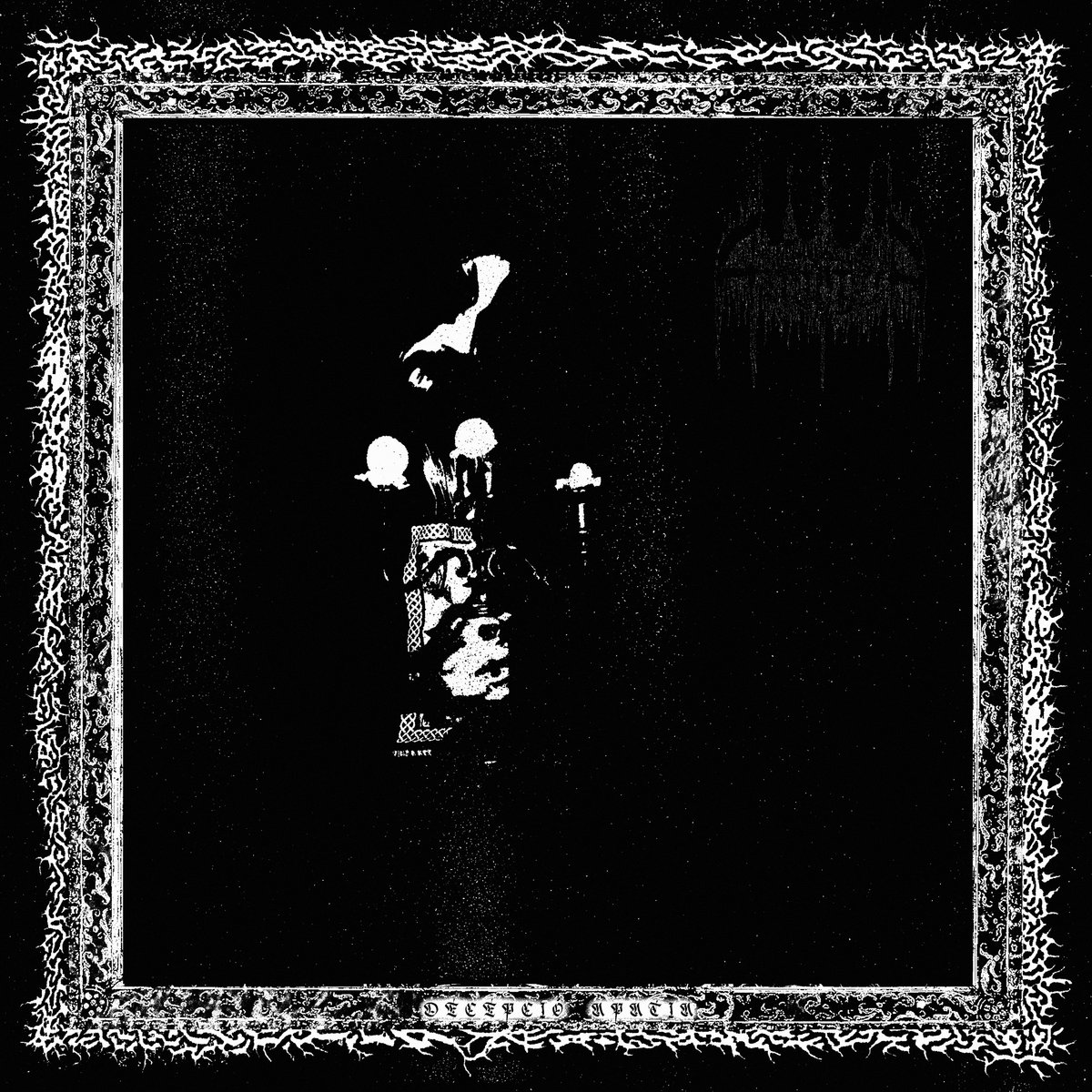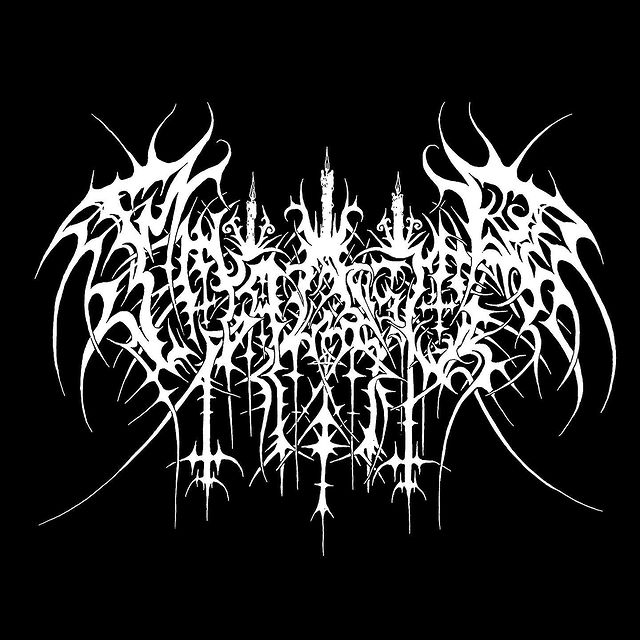Emerging in 2020 from the Catalan underground, Amargor, helmed solely by Manel "Woodcutter", has rapidly become a compelling voice in raw and depressive Black Metal. With a prolific output that includes demos, EPs, splits, and albums like “Fins a reeixir dins la claror de l’amargor” and “Decepció. Apatia.”, Amargor fuses elements of ritualistic bleakness, dungeon synth atmospheres, and folk‑tinged melancholia. Working at the intersection of despair and noise, the project pushes Black Metal beyond ferocity into emotional depth, carefully balancing clarity and distortion to evoke both torment and haunting melody. This interview aims to explore not just the sound, but the intellectual and emotional theatre behind one of Spain's most intriguing underground projects.
1. You launched Amargor in 2020 amidst a flood of early releases. What impulse drove you to focus on raw, emotive, and minimalist Black Metal, and how did Barcelona’s scene support or resist that vision?
The global pandemic was a big part of it. Having the time to focus on a solo project that I had been thinking about and already recorded some demos before the lockdown as early as 2018 really helped. I also had some themes, inspirations and an overall impulse to make something personal, but the word “Amargor” (bitterness) just struck in my head, and it all made sense. The world was (and still is) going in a downward spiral, my country, Catalunya, and its people, were being treated as puppets and the rage and frustration still boil to this day, the isolation made me more aware of my own shit, and I had all the instruments and tools to record something of my liking. Negra Nit distro from Besalú, Catalunya, and Forgotten Sorcery Productions, from London, UK, were the first labels to ever trust in the project and release the first album during that time, and for that I am eternally grateful.
As for the local scene, it hasn’t really made an impact since only a minority of people care about this rawer sound in Black Metal, and being a solo project without doing any gigs, it kinda just went off the radar for a lot of people outside my own circle of friends and bandmates of that time; and that’s ok.
2. Your moniker “Woodcutter” suggests roots in craftsmanship. How does that identity inform your approach to songwriting, are these compositions hand‑carved rather than machine‑crafted?
I really like the approach of writing music as some sort of a puzzle that has no right answer, and I also practice this view sometimes with my artworks too. A little structure is always welcome, but I like that there’s a human and imperfect side there. Call it kintsugi or an acquired taste to noisier and more chaotic sounds. It creates an identity, a way of telling the listener or viewer that it was not made by a computer. Fuck AI. Also, being able to play all the instruments gave me a sense of complete creative freedom, key to allow myself to do whatever I want to play.
3. Amargor blends raw Black Metal with dungeon‑synth ambiance. How do you decide when to embrace clarity, as in separating instrument voicing, and when to plunge into murk and distortion?
I tend to spend hours repeatedly listening to the same songs over and over again and thinking if it lacks something or that maybe it’s too much. I like the blend of both sounds you mention so it’s just a matter of balance.
4. On releases like “Decepció Apatia”, unexpected instruments (like lute‑tones) emerge. What prompts you to interrupt bleakness with such atypical textures, and how do they shift the listener’s emotional trajectory?
I was trying new stuff with that record, and by recording acoustic elements as some sort of musical “haikus” to serve as interludes I got a pretty unique result. I didn't use any weird instrument, just my guitar recorded like an acoustic. Most riffs come from me just jamming with my guitar unplugged, and it felt like a more honest and raw view of what this project is.
5. Your lyrics use Catalan and explore themes of disappointment, apathy, martyrdom. How does writing in your native tongue shape both your emotional distance and narrative intimacy?
Catalan is my language, and it feels honest rather than using English to write about my thoughts, since I think in Catalan. For some time before I started Amargor, I was finally discovering many underground Catalan bands. Most of them are Death Metal or Grindcore, singing in my language, and I cherish them for what I thought I'd never see possible in a world full of bands singing poorly in English.
Black Metal is rooted in singing in your own language, being as genuine as possible, and that connection of both sides was key to make me decide to write lyrics without the barrier of using a foreign language for my own project. Going through depression and a bad time in history really sparks the need to write down lots of thoughts and emotions. Ironically, even though I grew as a person and my mental health is much better, I still don’t struggle to find negativity or melancholy inside of me. That just lives as a part of me as an individual.
6. Titles like “Terres de somnis a perdre” (Lands of Dreams to Lose) evoke a poetic despair. Do these signals reflect personal crises, collective grief, or mythic storytelling?
The overall theme of that album is pretty much a sum of the emotional states I experienced through that time. Like you mentioned, it served as a way of expressing all that was like, and still is, living as a depressed Catalan person in this era.
7. Your 2022 split with Turment Nocturn mirrored Catalan nationalism and raw Black Metal identity. Was this a display of regional solidarity, musical psychology, or both?
I’d say both. We’ve both gone through the struggle of finding ourselves abandoned in this local musical scene, as well as in a political way in a global sense. We both stand for the independence of Catalunya as well as share the same taste in music.
9. Your catalogue stretches from underground rawness to more structured full‑lengths like “Tenebres i Foscúria”. What conceptual or personal shifts fed that evolution between 2020 and 2023?
One thing I try to do is to never sound exactly the same as the previous record but still maintain the essence and spirit. Not talking about changing genres suddenly, but I’m not a fan of those bands that have a really long song that is basically their entire discography. “Tenebres i Foscúria” was a way of focusing on the more aggressive and darker sounds rather than melody or depth.
10. You’ve released a torrent of recordings in your first years. How sustainable is this pace for creative resilience, and what does it reveal about your work ethic or emotional state?
I reached a point where I'm constantly joking about releasing a new album every week, so I tried slowing down the output to really focus on all the details and be entirely convinced I want it to sound that way. Since I’m diy-ing all the process, there are so many things I would've done differently on previous records, but that’s part of the way of how I intended this project to function.
11. Do you see yourself composing a definitive magnum opus, or will the project remain a restless series of brief, yet intense, chapters?
If there’s ever a magnum opus of Amargor, I hope I never intend to do so per se, since I don't decide whether it is best or worse from the beginning, and public opinion is just as subjective as mine. I just record what i feel at that given time and let anyone else decide if they like it or not.
12. Amargor’s harshness can be emotionally punishing. Do you welcome such intense reactions, and how conscious are you of provoking discomfort?
Amargor will never be an easy listen. To me, some albums still hold a lot of emotional charge from their lyrics or the mental place i was during that period, and i either don’t revisit them often or if i do, i let myself get absorbed by it.
As for what I intended for the listeners is entirely up to them how to approach my music, but I might sometimes give out some instructions on how to do so: in complete darkness, not sober, by night… completely up to you.
13. In an age of glossy production and rapid streaming culture, what do you believe raw and lo-fi Black Metal still offers, artistically, culturally, and spiritually?
It served me as a way of getting out of the ever-increasing trend of making music as bland as possible. Black Metal in general is not free of that sadly, but this niche of shit sounding music with great thought behind their compositions and charged with emotion is a testimony of how there’s people that want to keep this genre alive as it should be: Hermetic to the masses and only for a select few.
14. If Amargor had a symbolic logo, mantra, or single-word name that distilled its essence, what would that be, and why?
“Donec perficiam” is a chant originated during the War of Succession in the 18th century. It means “until victory”, to never surrender, but reflects the bitter sentiment that permeates both Amargor and Catalunya. I believe it would be that.
15. Looking back on your journey so far, how has creating this body of work, through isolation, intensity, and artistic fervour, changed you personally and artistically?
It’s been a liberating yet humbling experience to see this utterly personal and harsh music connect with so many people. It helped me understand myself better but also learned and helped me shape the way I want to be.
Thank you so much for the time invested in this interview and the opportunity to talk more in depth about this project.
Amargor
stands as an uncompromising exploration of despair, ritual, and minimalism
within contemporary Black Metal. Through a disciplined torrent of releases and
a restless experimentation across texture and language, M.W. has crafted a body
of work that is as emotionally taxing as it is artistically rigorous. This
interview framework seeks not only to unpack the musical strategies at play,
but to reflect on the philosophical and existential currents driving the
project. In confronting sorrow and fragmentation, Amargor asks a profound
question of its listeners: how far will you go to feel, or to bear?




Comentários
Enviar um comentário